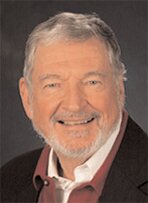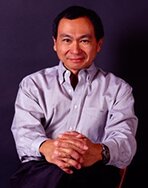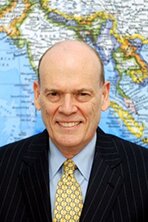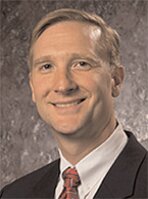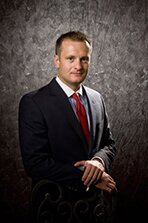Francis Fukuyama’s “The End of History?” 25 Years Later
Featuring
|
1:00-2:30 p.m. |
Panel 1 Moderator: John Mueller |
|
2:30-2:45 p.m. |
Break |
|
2:45-4:15 p.m. |
Panel 2 Moderator: Christopher Preble |
|
4:15-4:30 p.m. |
Concluding Remarks |
|
4:30-5:30 p.m. |
Reception |
In an article that went viral in 1989, Francis Fukuyama advanced the notion that with the death of communism history had come to an end in the sense that liberalism — democracy and market capitalism — had triumphed as an ideology. Fukuyama will be joined by other scholars to examine this proposition in the light of experience during the subsequent quarter century.
Regretfully, registration for this event is now closed. We have reached seating capacity and are unable to accept additional reservations. However, the event will be streamed live on our website at https://www.cato.org/live/. The event video will also be available approximately 24 hours after the event concludes at https://www.cato.org/events/archive.html.
John Mueller is a senior fellow at the Cato Institute as well as senior research scientist at the Mershon Center and a member of the political science department at Ohio State University. He is a leading expert on terrorism and particularly on the reactions (or overreactions) it often inspires. Among his books are Overblown, Atomic Obsession, War and Ideas, Astaire Dancing and (with Mark Stewart) Terror, Security, and Money. He is a member of the American Academy of Arts and Sciences, has been a John Simon Guggenheim Fellow, and has received grants from the National Science Foundation and the National Endowment for the Humanities. He has been a visiting fellow at the Brookings Institution, the Hoover Institution at Stanford University, and the Norwegian Nobel Institute in Olso.
Francis Fukuyama is Olivier Nomellini Senior Fellow at the Freeman Spogli Institute for International Studies (FSI) and a resident in FSI's Center on Democracy, Development, and the Rule of Law at Stanford University. Among his books are The End of History and the Last Man, America at the Crossroads: Democracy, Power, and the Neoconservative Legacy, and, most recently, The Origins of Political Order; the companion volume Political Order and Political Decay will be published in 2014. Fukuyama has taught at the Paul H. Nitze School of Advanced International Studies (SAIS), was a member of the Political Science Department of the RAND Corporation and of the Policy Planning Staff of the U.S. Department of State, and served as a member of the President's Council on Bioethics from 2001-2004. He is also the chairman of the editorial board of The American Interest, which he helped to found in 2005. He is a senior fellow at the Johns Hopkins SAIS Foreign Policy Institute and a non-resident fellow at the Carnegie Endowment for International Peace and the Center for Global Development.
Adam Garfinkle is founding editor of The American Interest. He served as principal speechwriter to the Secretary of State (S/P, Policy Planning) from 2003-05, was editor of The National Interest, and has taught at the Johns Hopkins School of Advanced International Studies (SAIS), the University of Pennsylvania, Haverford College, and other institutions of higher learning. Garfinkle served as a member of the National Security Study Group of the U.S. Commission on National Security/21st Century and as an aide to Senator Henry M. Jackson. He is the author of Jewcentricity: How the Jews Get Praised, Blamed and Used to Explain Nearly Everything and Telltale Hearts: The Origin and Impact of the Vietnam Antiwar Movement, which was named a "notable book of the year" in the New York Times Book Review.
Michael Mandelbaum is a foreign policy specialist and a bestselling author known for his ability to explain the meaning and consequences of complicated global developments and trends. Mandelbaum has authored or co-authored 14 books, including The Road to Global Prosperity, That Used to Be Us: How America Fell Behind in the World It Invented and How We Can Come Back, and The Frugal Superpower, which The Financial Times named one of the best non-fiction books of 2010. Mandelbaum is the Christian A. Herter Professor and Director of American Foreign Policy at the Johns Hopkins University School of Advanced International Studies (SAIS), and has taught at Columbia University, Harvard, and The United States Naval Academy. He serves on the board of advisors of The Washington Institute for Near East Policy and is a former Senior Fellow at the Council on Foreign Relations.
 Paul R. Pillar is a nonresident senior fellow of the Center for 21st Century Security and Intelligence in the foreign policy program at the Brookings Institution and a nonresident senior fellow of the Center for Security Studies in the Edmund A. Walsh School of Foreign Service at Georgetown University. During a 28-year career in the U.S. intelligence community, Pillar served as national intelligence officer for the Near East and South Asia and was deputy chief of the Counterterrorism Center at the Central Intelligence Agency. He is the author of Terrorism and U.S. Foreign Policy and Intelligence and U.S. Foreign Policy: Iraq, 9/11, and Misguided Reform.
Paul R. Pillar is a nonresident senior fellow of the Center for 21st Century Security and Intelligence in the foreign policy program at the Brookings Institution and a nonresident senior fellow of the Center for Security Studies in the Edmund A. Walsh School of Foreign Service at Georgetown University. During a 28-year career in the U.S. intelligence community, Pillar served as national intelligence officer for the Near East and South Asia and was deputy chief of the Counterterrorism Center at the Central Intelligence Agency. He is the author of Terrorism and U.S. Foreign Policy and Intelligence and U.S. Foreign Policy: Iraq, 9/11, and Misguided Reform.
Christopher A. Preble is the vice president for defense and foreign policy studies at the Cato Institute. He is the author of three books including The Power Problem: How American Military Dominance Makes Us Less Safe, Less Prosperous and Less Free, and has published articles in many major publications including USA Today, the Los Angeles Times, the Financial Times, National Review, The National Interest, and Foreign Policy. In addition to his work at Cato, Preble teaches the U.S. Foreign Policy elective at the University of California, Washington Center (UCDC). Before joining Cato in February 2003, he taught history at St. Cloud State University and Temple University. Preble was a commissioned officer in the U.S. Navy, and served onboard USS Ticonderoga (CG-47) from 1990 to 1993.
Marian L. Tupy is the editor of HumanProgress.org and a senior policy analyst at the Cato Institute's Center for Global Liberty and Prosperity. He specializes in globalization and global wellbeing, and the political economy of Europe and sub-Saharan Africa. His articles have been published in the Financial Times, Los Angeles Times, Wall Street Journal (U.S. and Europe), The Atlantic, Spectator (UK), Weekly Standard, Foreign Policy, Reason magazine, and various other outlets both in the United States and overseas. Tupy has appeared on The NewsHour with Jim Lehrer, CNN International, BBC World, CNBC, MSNBC, Al Jazeera, and other channels. He has worked on the Council on Foreign Relations' Commission on Angola, testified before the U.S. Congress on the economic situation in Zimbabwe, and briefed the Central Intelligence Agency and the State Department on political developments in Central Europe.

This work is licensed under a Creative Commons Attribution-NonCommercial-ShareAlike 4.0 International License.
